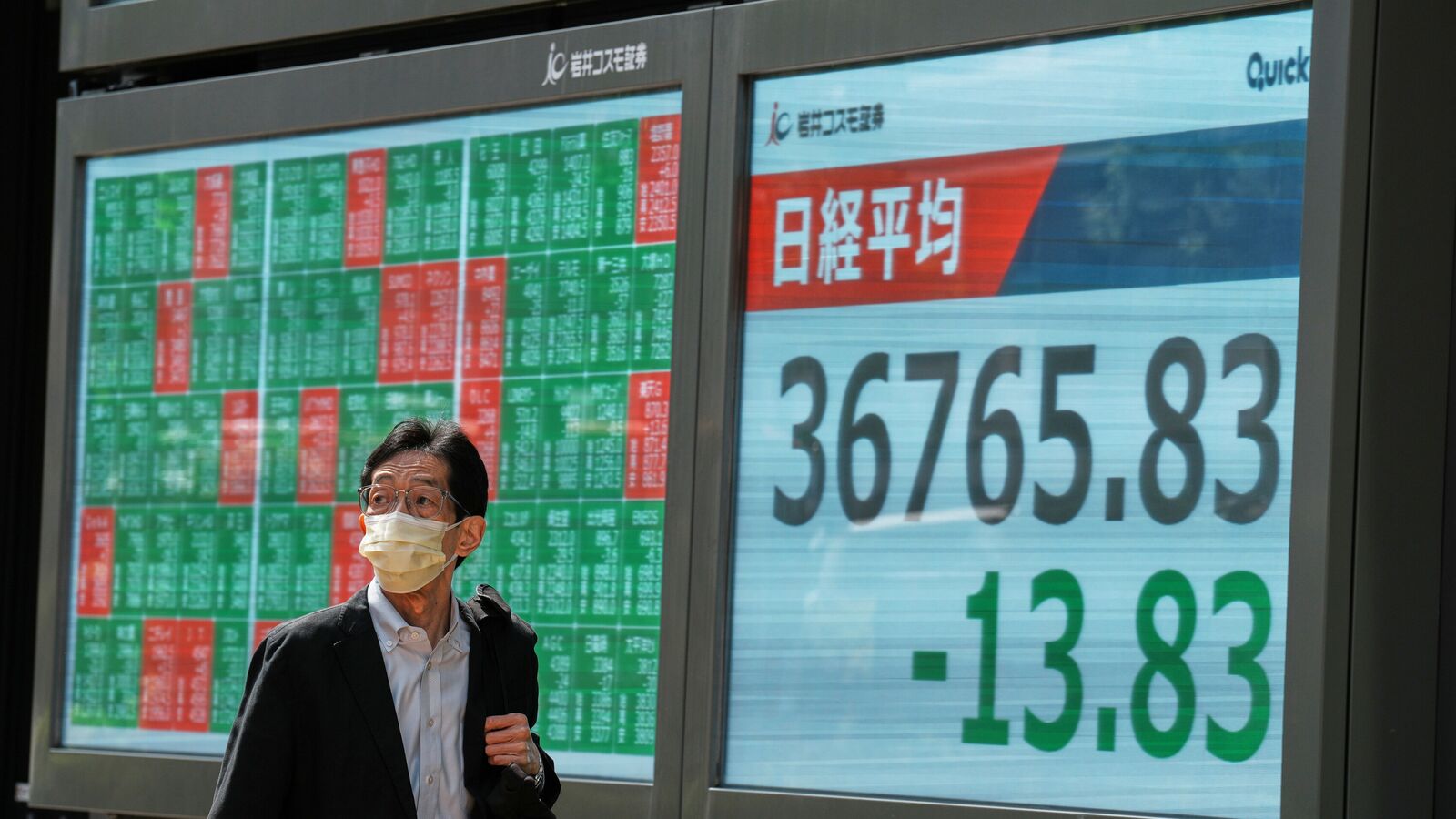The Indian stock market is bracing for a challenging start as both the Sensex and Nifty 50 indices are projected to open lower on Friday. This development follows heightened military tensions between India and Pakistan, which have stirred uncertainty among investors. Meanwhile, Asian markets displayed a mixed performance, while U.S. stocks enjoyed a boost overnight, thanks to a recent trade agreement between the United States and the United Kingdom.
Market Overview: Sensex and Nifty 50 Decline
On Thursday, the Indian equity market faced downward pressure, primarily due to late selling as geopolitical tensions escalated. Reports emerged that Indian forces targeted air defense radars in Pakistan. The Sensex plummeted by 411.97 points, or 0.51%, closing at 80,334.81, while the Nifty 50 fell 140.60 points, or 0.58%, settling at 24,273.80.
Ajit Mishra, Senior Vice President of Research at Religare Broking Ltd, advised traders to adopt a hedged strategy amidst ongoing volatility, emphasizing the importance of prudent stock selection.
Global Market Influences
Asian Market Activity
Asian equities experienced varied trading sessions on Friday. Investors are keenly awaiting China’s trade data, which has added to the air of uncertainty regarding U.S.-China relations:
- Japan’s Nikkei 225 surged 1.17%
- Topix climbed 1.06%
- South Korea’s Kospi rose 0.3%
- Conversely, Kosdaq dropped 0.59%
- Hong Kong’s Hang Seng indicated a slight dip at the opening.
U.S. Market Performance
In contrast, the U.S. stock market closed on a positive note. The Dow Jones Industrial Average increased by 254.48 points, or 0.62%, reaching 41,368.45. The S&P 500 gained 32.66 points, or 0.58%, to settle at 5,663.94, and the Nasdaq Composite climbed 189.98 points, or 1.07%, closing at 17,928.14.
Notable movements included:
- Delta Air Lines shares soaring by 7.2%
- Boeing shares up 3.3%
- Arm stock dropping 6.2%
- Tapestry shares rising 3.7%
- Krispy Kreme plummeting 24.7%
Rising Tensions: India and Pakistan
The situation between India and Pakistan continues to worsen, especially following recent military engagements. Drones and missiles from Pakistan targeted military stations in Jammu and Kashmir, prompting a swift response from the Indian military, which successfully neutralized the threats. Reports confirm that two Pakistani drones were shot down in the Naushera sector.
Key Economic Developments
U.S.-UK Trade Agreement
A new trade deal between U.S. President Donald Trump and British Prime Minister Keir Starmer has been announced, which maintains 10% tariffs on British exports while offering modest agricultural access. This agreement is expected to have implications for both nations’ economies.
Jobless Claims in the U.S.
In the U.S., initial claims for unemployment benefits saw a decrease, falling to 228,000 for the week ending May 3, a drop of 13,000, exceeding economists’ expectations of 230,000 claims.
Bank of England Rate Decision
The Bank of England recently decided to cut interest rates to 4.25%, albeit with a surprising split among policymakers. This decision was approved by a 5-4 vote, indicating differing views on future monetary policy.
Commodities and Currency Updates
Gold and Oil Prices
Gold prices experienced a slight increase, with spot gold rising 0.1% to $3,309.39 per ounce. Meanwhile, crude oil prices continued their upward trajectory, with Brent crude climbing 0.17% to $62.95 a barrel.
U.S. Dollar Strength
Following the trade agreement, the U.S. dollar strengthened against major currencies, with the dollar index rising 0.77% to 100.66. The euro fell 0.67%, trading at $1.1223, while the pound decreased by 0.42% to settle at $1.3239.
In summary, the Indian stock market faces a precarious situation influenced by geopolitical tensions and global market dynamics. Investors should remain vigilant and consider strategic approaches to navigate this period of uncertainty.











